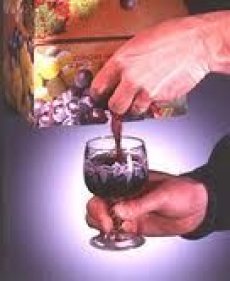New publications
Wine stored in bags loses its properties
Last reviewed: 01.07.2025

All iLive content is medically reviewed or fact checked to ensure as much factual accuracy as possible.
We have strict sourcing guidelines and only link to reputable media sites, academic research institutions and, whenever possible, medically peer reviewed studies. Note that the numbers in parentheses ([1], [2], etc.) are clickable links to these studies.
If you feel that any of our content is inaccurate, out-of-date, or otherwise questionable, please select it and press Ctrl + Enter.

If we believe French scientists (and we have no reason not to believe them), wine stored in various packages loses its unique bouquet and aroma. The key chemical compounds that provide these characteristic qualities are simply absorbed by the packaging.
The absorption of flavours into packaging (known as 'flavouring') is a well-known problem in the juice industry. It is also no secret that synthetic corks absorb flavours and aromas from wine to a much greater extent than natural corks. However, much less is known about the 'flavouring' of wine in increasingly popular containers such as Tetrapaks and the 'plastic bag'.
To conduct this study, the French researchers mixed two ethyl esters and two alcohols in an acidified aqueous solution of ethyl alcohol, creating a simplified model of wine. Ethyl butyrate and ethyl hexanoate give the wine its fruity flavor, phenylethyl alcohol gives a hint of honey flavor, and 4-ethylphenol is responsible for the subtle aroma of smoke.
As it turns out, these substances are quickly absorbed by polyethylene film or simply penetrate it. Ethyl hexanoate, as the most non-polar molecule, shows a special attraction to non-polar polyethylene: after only five days, a quarter of the ethyl hexanoate content was “lost” somewhere inside the film!
Researchers from various institutes in the US and Australia (regions that produce fairly cheap wine) initiated a debate with their French opponents, hinting that their simplified model was too simple to be directly transferable to real wine, especially since no taste tests were conducted with human tasters and real wine samples.
However, you and I, ordinary consumers, have no time for scientific subtleties - everyday logic suggests that if an initially "ideal" product has lost some components, and in the most unpredictable proportions (and the effects of absorption also depend on temperature, and it constantly fluctuates), then it could not have become better from this. Does it matter to us how the taste of wine changes after storing it in plastic packaging, the main thing is that it will no longer be what winemakers wanted to see, saw and produced it. In general, glass containers, despite their weight and cost, are the only way to preserve wine in its more or less original form. Oh, and pay attention to the corks - avoid wines in synthetics.
